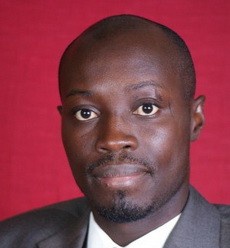
Mr Cassiel Ato Forson, Deputy Minister of Finance, said the role of small and medium enterprises (SMEs) was very critical to the accelerated economic development and growth agenda of the country.
He said SMEs not only dominated the business sector, but were also leading contributors to employment, estimated at about 60 per cent of total employment.
Mr Forson made the remarks at the weekend in a speech read on his behalf by Mr Joseph Chognuru, a Director at the Ministry, during the launch of ABii National Savings and Loans Limited in Accra.
He said available data indicated that about 90 per cent of companies registered were micro, small and medium enterprises.
The Deputy Minister said this target group had also been identified as the catalyst for economic growth and, therefore, urged all non-banking financial institutions, particularly ABii National Savings and Loans, to assist those enterprises by making credit more affordable and accessible.
He said the financial sector had become more and more dynamic, with new trends coming up, which provided new opportunities to create financial products that best served the people.
He said Government was, therefore, committed to working with all players to achieve the common goal of ensuring sound, stable and robust financial sector.
Mr Forson said the non-bank financial sector, including savings and loans companies, played a critical role in building a strong and viable financial sector for the development of the economy.
He said the financial services industry, especially the non-bank sub-sector, remained a key source for the mobilisation of the much needed short and long term funds for national development.
He noted that by financing different productive activities in the economy, the non-bank financial sub-sector contributed immensely to addressing the unemployment problem and poverty reduction in general.
Mr Forson said there was a high growth in the number of universal banks, which currently stood at 27, with over 750 branches in Ghana.
He said in addition, there were 197 rural and community banks with about 711 branches and outlets; 200 licensed microfinance businesses and 640 credit unions.
He said the World Bank 2012 Report on Financial Inclusion in Africa, estimated that 2.5 billion people were living without access to financial services and three quarters of the world’s low income earners were unbanked.
The Deputy Minister said this suggested that traditional financial products and delivery channels had achieved very little in addressing the needs of this segment of people.
He said Government’s policy direction had been to deepen and diversify the financial sector to ensure the creation of a robust financial system that could promote private sector growth.
Mr Forson said it was expected that Ghana’s financial sector would continue to be the preferred source of finance for domestic companies.
He said a Finscope Ghana Survey had revealed that about 40 per cent of Ghana’s population was unbanked while 90 per cent were uninsured.
He said this section of the population was not in a position to appreciate the inherent benefits of the financial services industry.
Mr Forson said Government was promoting financial inclusion by putting in place a stronger and more facilitative legal and regulatory framework that supported the protection of consumers of financial services.
He said to manage the risks, government passed the Credit Report Act, 2007 (Act 726) which established the legal and regulatory mechanism for the licensding and operations of credit bureaux primarily to bridge information symmetry between providers and consumers of financial services.
Dr Henry Kofi Wampah, Governor of Bank of Ghana (BoG), in a speech read on his behalf by Mr Stephen Amegashie, Assistant Director at the Governor’s Department, said the Central Bank would soon announce a new deadline for all savings and loans companies to meet the new minimum capital requirement of GH¢ 15.0 million.
Mr Godfried Osei-Boakye, Managing Director of ABii National, said the company was established in September 2011 with a provisional license to operate.
He said after the official approval of a full license in February 2013 by the BoG, the financial institution launched into operations in September 2013 at its Avenor premises which housed both a branch and the head office.
He said: "ABii National can now boast of six running branches at Avenor, Abossey Okai, Darkuman-Kokompe, Kasoa, Adum – Kumasi and Mallam Atta, while the seventh branch in Takoradi will be on board soon."
He said the vision of ABii National is “to be the most desired indigenous bank, partnering with our customers to unlock their financial potential and be seen as the key to excellent banking’’.
“ABii National aims to become a first class universal bank of choice by deploying the best personnel and technology to deliver excellent banking services to all customers and increasing shareholders value’’.
Mr Osei-Boakye said all the six branches were fitted with state of the art Automated Teller Machines (ATMs), with an offsite ATM at the Korle-Bu ATM Farm.
“After two months of operation and with one branch, ABii managed to close the year 2013 with a deposit of GH¢ 3.9m and a loan portfolio of GH¢ 308,000.
“Our current deposit position is GH¢ 17.8m while loans and advances is GH¢ 10m, with Non-Performing Loans ratio (NPL) of one per cent,” he said.